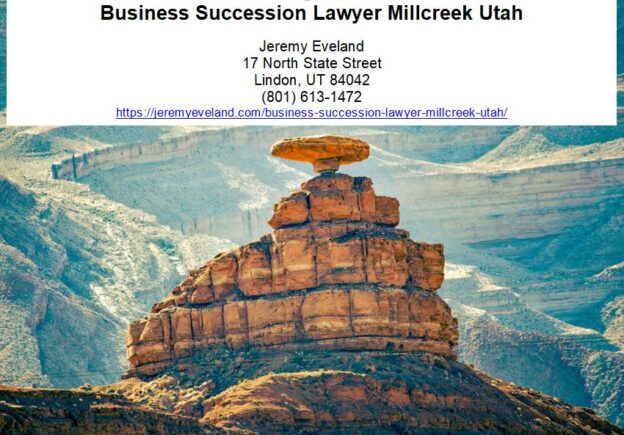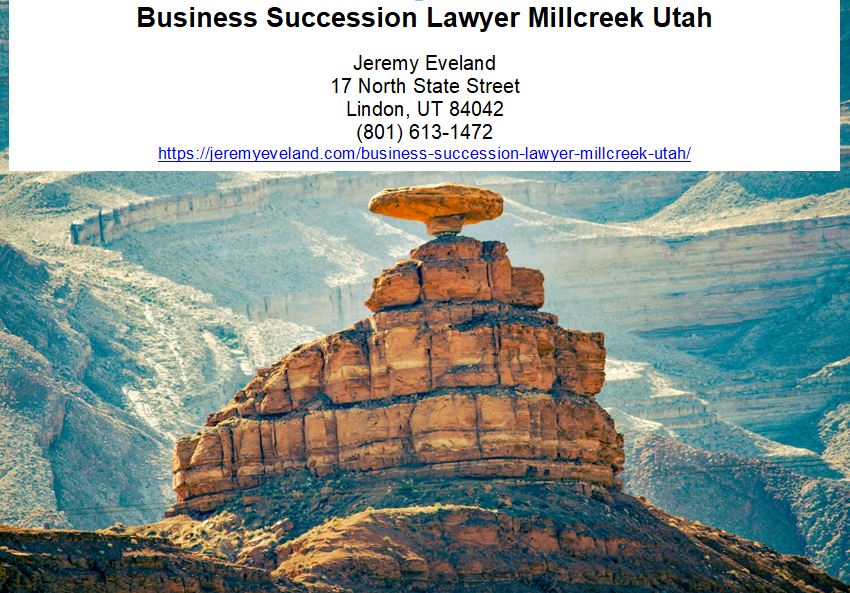Have you ever heard of a Grantor Trust? If not, don’t worry, you’re not alone. In this article, we will provide you with some essential information about Grantor Trusts, giving you the clarity and context you need to understand this concept better. Whether you’re an individual or a couple, the goal is to guide you towards seeking professional assistance. So, let’s dive into the world of Grantor Trusts and explore how they can potentially benefit you.
What is a Grantor Trust?
Definition of Grantor Trust
A grantor trust is a legal entity created for the purpose of holding and managing assets on behalf of the grantor, the person who establishes the trust. It is commonly used for estate planning purposes to ensure the smooth transfer and management of assets both during the grantor’s lifetime and after their death.
Characteristics of a Grantor Trust
There are several key characteristics that define a grantor trust:
-
Revocability: A grantor trust can be either revocable or irrevocable. A revocable trust allows the grantor to retain control over the trust assets and modify or terminate the trust at any time. On the other hand, an irrevocable trust cannot be easily modified or revoked by the grantor.
-
Taxation: A grantor trust is typically structured in a way that the grantor is considered the owner of the trust assets for income tax purposes. This means that any income generated by the trust is reported on the grantor’s personal tax return, rather than on a separate tax return for the trust.
-
Control: The grantor of a trust often acts as the trustee, the person responsible for managing the trust assets. This allows the grantor to maintain control over the assets and make decisions regarding their management and distribution.
-
Beneficiaries: A grantor trust has one or more designated beneficiaries who will receive the trust assets upon the grantor’s death or at a specified time. The grantor can choose who the beneficiaries will be and how the assets will be distributed to them.
Types of Grantor Trusts
Revocable Living Trust
A revocable living trust is a type of grantor trust that allows the grantor to retain control over the trust assets during their lifetime. It is commonly used as an effective estate planning tool to avoid probate and ensure the seamless transfer of assets to beneficiaries.
Irrevocable Living Trust
An irrevocable living trust, as the name suggests, is a grantor trust that cannot be easily modified or revoked by the grantor. Once the trust is established, the grantor relinquishes control over the trust assets. This type of trust is often used for Medicaid planning or to protect assets from creditors.
Intentionally Defective Grantor Trust (IDGT)
An intentionally defective grantor trust (IDGT) is a unique type of grantor trust that is intentionally structured to make the grantor liable for income taxes generated by the trust. This allows the trust assets to grow tax-free, while still being considered part of the grantor’s estate for estate tax purposes. IDGTs are commonly used in advanced estate planning strategies.

Click Here For More Information
Benefits of Grantor Trust
Control Over Assets
One of the primary benefits of a grantor trust is that it allows the grantor to maintain control over the trust assets. By acting as the trustee, the grantor can make decisions about how the assets are managed, invested, and distributed. This level of control provides peace of mind to the grantor, knowing that their assets are being handled according to their wishes.
Avoidance of Probate
Probate is the legal process of validating a deceased person’s will and distributing their assets. By using a grantor trust, assets held in the trust can bypass probate altogether, avoiding the delays, costs, and public scrutiny associated with the probate process. This can significantly simplify the transfer of assets to beneficiaries and ensure a smooth transition of wealth.
Tax Advantages
Grantor trusts provide several tax advantages, depending on the type of trust and the grantor’s individual circumstances. In a revocable living trust, the grantor’s continued ownership of the trust assets for tax purposes allows them to take advantage of certain tax deductions and credits. In an irrevocable living trust, the transfer of assets to the trust may result in reduced estate taxes, and the trust itself may have lower income tax rates.
Flexibility
Grantor trusts offer flexibility in terms of how assets are managed and distributed. The grantor has the ability to modify the trust terms, change beneficiaries, and make adjustments as their circumstances change. This flexibility ensures that the trust remains adaptable to the grantor’s evolving needs and objectives.
How Does a Grantor Trust Work?
Creation of the Trust
A grantor trust is created when the grantor establishes the trust document and transfers assets into the trust. The document outlines the terms and conditions of the trust, including the identity of the beneficiaries, the powers and responsibilities of the trustee, and the distribution instructions.
Transfer of Assets
Once the trust is established, the grantor must transfer ownership of assets into the trust. This typically involves changing the title and registration of assets, such as real estate, bank accounts, investments, and other valuable possessions. The assets are now held by the trust, and the grantor no longer personally owns them.
Grantor as Trustee
In many cases, the grantor of a trust also serves as the trustee, responsible for managing and overseeing the trust assets. This allows the grantor to retain control over the assets and make decisions about their management and distribution. However, it is important to note that the grantor must still adhere to the fiduciary duties and responsibilities associated with being a trustee.
Tax Reporting
Depending on the type of grantor trust, the grantor may be required to report the trust’s income and deductions on their individual tax return. This is because the trust is considered a pass-through entity for tax purposes, with the grantor being liable for any taxable income generated by the trust. It is essential to consult with a tax professional to ensure compliance with tax reporting requirements.

Revocable Living Trust
Definition
A revocable living trust, also known as a living trust or inter vivos trust, is a type of grantor trust that allows the grantor to maintain control over the trust assets during their lifetime. The trust is revocable, meaning that the grantor can modify or terminate it at any time. Upon the grantor’s death, the trust becomes irrevocable and its terms dictate the distribution of the assets.
Advantages
There are several advantages to establishing a revocable living trust:
-
Avoidance of Probate: Assets held in a revocable living trust do not go through probate. Upon the grantor’s death, the trust assets can be distributed to beneficiaries without the need for court intervention. This can save time and money and ensure privacy, as the distribution of assets remains confidential.
-
Flexibility: A revocable living trust can be modified or revoked by the grantor at any time, allowing for flexibility in adapting to changing circumstances or goals. The grantor can amend the trust document, change beneficiaries, add or remove assets, or even dissolve the trust altogether.
-
Asset Management: By acting as the trustee of the revocable living trust, the grantor retains control over the management and investment of the trust assets. This provides a level of security and peace of mind, knowing that the assets are being handled according to the grantor’s wishes.
Disadvantages
While a revocable living trust offers many benefits, there are also some disadvantages to consider:
-
Cost: Establishing a revocable living trust may involve upfront costs, including attorney fees for drafting the trust document and transferring assets into the trust. However, in many cases, the long-term benefits outweigh the initial expenses.
-
Complexity: Compared to a simple will, a revocable living trust can be more complex to set up and maintain. It requires careful drafting of the trust document and ongoing management of trust assets. The grantor may also need to make updates and amendments to the trust over time.
-
No Asset Protection: Assets held in a revocable living trust are not protected from creditors or legal claims. In the event of a lawsuit or bankruptcy, the trust assets may be subject to claims against the grantor. For asset protection purposes, an irrevocable trust may be more suitable.
Irrevocable Living Trust
Definition
An irrevocable living trust is a type of grantor trust that cannot be easily modified or revoked by the grantor. Once the trust is established, the grantor relinquishes control over the trust assets, which are managed by a designated trustee. This type of trust is often used for Medicaid planning, protecting assets from creditors, or minimizing estate taxes.
Advantages
There are several advantages to establishing an irrevocable living trust:
-
Asset Protection: Assets held in an irrevocable living trust are generally protected from creditors and legal claims against the grantor. This can be particularly beneficial for individuals who are at risk of lawsuits or have significant financial liabilities.
-
Estate Tax Planning: By transferring assets into an irrevocable living trust, the grantor can potentially reduce the value of their estate for estate tax purposes. This can result in lower estate taxes upon the grantor’s death, allowing more wealth to pass on to beneficiaries.
-
Medicaid Planning: Assets held in an irrevocable living trust are typically not counted towards the grantor’s eligibility for Medicaid long-term care benefits. This can be advantageous for individuals who anticipate the need for Medicaid assistance in the future.
Disadvantages
While an irrevocable living trust offers many benefits, there are also some disadvantages to consider:
-
Loss of Control: Once assets are transferred into an irrevocable living trust, the grantor no longer has control over their management or distribution. The designated trustee becomes responsible for making decisions regarding the assets, which may not align with the grantor’s preferences.
-
Complexity and Expense: Establishing and maintaining an irrevocable living trust can be complex and costly. Legal fees for setting up the trust, ongoing administrative costs, and the need for professional trustee services can add up over time.
-
Limited Flexibility: Unlike a revocable living trust, an irrevocable living trust cannot be easily modified or revoked. The grantor must carefully consider the trust’s terms and provisions before establishing it, as changes may be difficult or impossible to make in the future.
Intentionally Defective Grantor Trust (IDGT)
Definition
An intentionally defective grantor trust (IDGT) is a unique type of grantor trust that is intentionally structured to make the grantor liable for income taxes generated by the trust. The IDGT is designed to be “defective” for income tax purposes, while still being effective for estate and gift tax purposes. This allows the trust assets to grow tax-free, while still being considered part of the grantor’s estate for estate tax purposes.
Advantages
There are several advantages to using an intentionally defective grantor trust:
-
Tax-Free Growth: The grantor is responsible for paying the income taxes generated by the trust, allowing the trust assets to grow tax-free over time. This can result in significant wealth accumulation and maximize the assets ultimately passed on to beneficiaries.
-
Estate Tax Planning: Although the grantor is liable for income taxes, the trust assets are still considered part of the grantor’s estate for estate tax purposes. This can be advantageous for individuals looking to reduce estate taxes and pass on more wealth to their beneficiaries.
-
Asset Protection: Assets held in an intentionally defective grantor trust may be protected from creditors, as they are no longer considered the grantor’s personal assets. This can be especially beneficial for individuals facing potential legal claims or significant financial liabilities.
Disadvantages
While an intentionally defective grantor trust offers many benefits, there are also some disadvantages to consider:
-
Complexity: The tax implications and legal complexities associated with an intentionally defective grantor trust require careful planning and consultation with a qualified attorney and tax professional.
-
Tax Liability: As the grantor of the trust, you will be personally liable for the income taxes generated by the trust. Depending on the size and income potential of the trust, this can result in significant tax obligations.
-
Loss of Control: Like other types of irrevocable trusts, the grantor loses control over the trust assets once they are transferred into an intentionally defective grantor trust. The grantor must be comfortable with relinquishing control and trusting the designated trustee to make decisions regarding the assets.
Choosing the Right Grantor Trust for You
Considerations
When considering a grantor trust, there are several factors to take into account:
-
Goals and Objectives: Clarify your goals and objectives for establishing a trust. Are you primarily focused on avoiding probate, minimizing taxes, protecting assets, or ensuring flexibility in asset management? Understanding your priorities will help you determine the most appropriate type of trust for your needs.
-
Financial Situation: Assess your current financial situation, including the value of your assets, your potential tax liability, and any existing debts or legal claims against you. This will help determine the level of asset protection and tax benefits you may require from a trust.
-
Estate Planning Needs: Consider your long-term estate planning needs. Do you anticipate significant changes to your assets or family circumstances in the future? A trust that allows for modifications and flexibility may be more suitable if your circumstances are likely to change.
Consultation with an Attorney
Given the legal complexities and potential tax implications associated with grantor trusts, it is highly recommended to consult with an experienced estate planning attorney to ensure that you choose the right type of trust for your specific needs. An attorney can guide you through the process, explain the advantages and disadvantages of each type of trust, and help you create a comprehensive estate plan that aligns with your goals.

Grantor Trust vs. Non-Grantor Trust
Differences
The main difference between a grantor trust and a non-grantor trust lies in who is responsible for paying the income taxes generated by the trust. In a grantor trust, the grantor is personally responsible for paying the income taxes on trust income, while in a non-grantor trust, the trust itself is responsible for paying income taxes at its own tax rate. This difference has significant implications for tax planning and overall estate planning strategies.
Factors to Consider
When determining whether a grantor trust or a non-grantor trust is more suitable for your needs, consider the following factors:
-
Tax Planning: If minimizing income taxes is a top priority, a grantor trust may be beneficial. By assuming the tax liability, the grantor can effectively transfer income tax-free growth to the trust beneficiaries.
-
Estate Tax Planning: Estate tax planning is another crucial consideration. Grantor trusts, particularly IDGTs, can help reduce estate taxes by keeping the trust assets within the grantor’s estate, while still allowing for tax-free growth.
-
Control: Grantor trusts provide the grantor with greater control over the trust assets and the ability to make decisions regarding their management and distribution. If maintaining control is a priority, a grantor trust may be the preferred option.
-
Asset Protection: If protecting assets from creditors or potential legal claims is a concern, an irrevocable non-grantor trust may provide greater protection compared to a grantor trust.
It is essential to consult with an experienced attorney and tax advisor to evaluate your specific circumstances and determine which type of trust is best suited to achieve your goals.
Common Misconceptions About Grantor Trusts
Lack of Control
One common misconception about grantor trusts is that the grantor loses control over their assets once they are transferred into the trust. While the grantor may relinquish some control, particularly in an irrevocable trust, they can still maintain a significant degree of control by acting as the trustee or designating a trusted individual or institution as the trustee.
Taxation on Distributions
Another misconception is that distributions from a grantor trust are subject to additional income taxes. In reality, distributions from a grantor trust are not taxable events for either the grantor or the beneficiaries, as the trust’s income is already reported on the grantor’s personal tax return.
Estate Tax Planning
Some individuals believe that grantor trusts are only beneficial for high-net-worth individuals or those with complex estate planning needs. While grantor trusts do offer valuable estate tax planning benefits, they can also be advantageous for individuals at various income levels who want to ensure the smooth transfer of assets and minimize probate.
It is important to consult with an experienced estate planning attorney to fully understand the benefits and implications of establishing a grantor trust and dispel any misconceptions or uncertainties.
In conclusion, a grantor trust is a versatile estate planning tool that offers numerous benefits, including control over assets, avoidance of probate, tax advantages, and flexibility. Whether you choose a revocable living trust, an irrevocable living trust, or an intentionally defective grantor trust, it is crucial to consult with an attorney to determine the most suitable type of trust for your specific needs. By establishing a grantor trust, you can ensure the effective management and seamless transfer of your assets, while also maximizing tax benefits and protecting your wealth. Take the next step in your estate planning journey by contacting an experienced attorney today to discuss your options and create a tailored plan that aligns with your goals. Call [Phone Number] to speak with one of our experienced attorneys and get started on your estate planning journey.

















